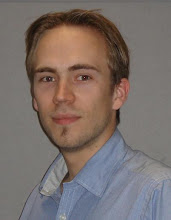 COP 15 in Copenhagen has ended this Saturday in the early morning with practically no real results. Not only were decisive measures to mitigate climate change postponed, there was not even a clear signal regarding COP 16 in Mexico. If the world's leaders were not able to produce a post-Kyoto treaty, it would have at least been their duty to set the foundations for further (meaningful!) negotiations at the next talks. But not even this absolute minimum was achieved.
COP 15 in Copenhagen has ended this Saturday in the early morning with practically no real results. Not only were decisive measures to mitigate climate change postponed, there was not even a clear signal regarding COP 16 in Mexico. If the world's leaders were not able to produce a post-Kyoto treaty, it would have at least been their duty to set the foundations for further (meaningful!) negotiations at the next talks. But not even this absolute minimum was achieved.Nevertheless Copenhagen also delivered some positive signals. I was impressed with the 'Klimaforum', the 'alternative summit' of the civil society and NGOs active in climate change which was organized right next to Copenhagen's main train station. There were a lot of presentations from different NGOs and scientists working on climate change everyday. At most times there were at least four different seminars and talks to choose from, each focusing on very different issues of climate change. And most importantly climate change got a real face at the 'Klimaforum'. There were representatives from the landless movements from Latin America, Bangladeshis explaining the dire situation of their country to other visitors and photo exhibitions on the effects of climate change from the Maldives, Sri Lanka and many different places. The pictures of vanishing beaches and dying coral reefs on the Maldives underline that we are not only talking about abstract figures but about the lives and homes of people.
The Klimaforum had everything the Bella Center was missing: the talks were close to the realities on the ground, victims of climate change were directly included, there was a spirit of change uniting participants from all continents and most importantly there were hope and determination. This strong, multinational civil society movement is still at its starting point. It will grow with each UNFCCC meeting and will ensure that the pressure on the world's leaders to act will rise.
The professionalism some NGOs are already displaying in steering media attention and pressure is reassuring. On Wednesday for example, a group consisting of Canadian citizens, the red clothed 'Climate Debt Agents' and the Yes Men managed to make Canada's obstructive climate change policy look completely foolish in the global media. The group had sent out e-mails from a fake Canadian government e-mail account called press@enviro-canada.ca in which Canada promised a 40% cut of emissions and considerable sums of money to pay back their 'climate debts' to developing countries. Of course Canada could have reacted somehow at this point to avoid a public loss of face, but the NGOs were too cunning to let this happen. They published a video from a fake press conference of an Ugandan delegate that they had recorded in a reconstruction of Bella Centers main press room. The supposed Ugandan delegate as well as the 'media representatives' in the video were all climate change activists. In the press video the Ugandan delegate lauded Canada's recent commitments and talked about a break through at COP 15. In another e-mail form a fake government mail account the group then faked a Canadian reaction, stating the following:
- We at Environment Canada wish to thank the international press community for their measured and understanding response to the hoax that struck our agency earlier this afternoon, while expressing our condolences to the Ugandan delegation who were swept up in the excitement of this false future "vision."Environment Canada wishes to stress that the Ugandan delegation's impassioned response to the announcement is a dramatic tragedy for those who stand to suffer the most.
"It is the height of cruelty, hypocrisy, and immorality to infuse with false hopes the spirit of people who are already, and will additionally, bear the brunt of climate change's terrible human effects," said Jim Prentice, Canada's Minister for the Environment. -
At this point a small group of climate change activists had exposed Canada's climate policy and shut all loopholes the Canadian government would have had to escape this public relations disaster unscathed. Sophisticated actions like this heighten the pressure on governments that are not willing to make concessions regarding climate change. If we see more activities like this in the future, obstructive policies in climate change negotiations will become more and more costly for governments. And eventually we will reach a point at which the parties just cannot afford another failure like the one in Copenhagen.




